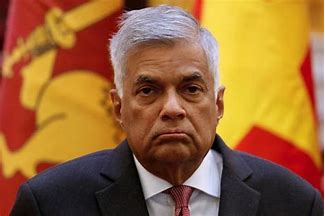Ranil President for Next Two Years
 Yesterday, Parliament elected UNP Leader and Premier Ranil Wickremesinghe as the country’s eighth Executive President as per the Constitution.
Yesterday, Parliament elected UNP Leader and Premier Ranil Wickremesinghe as the country’s eighth Executive President as per the Constitution.
Wickremesinghe, with support from the SLPP, who has 145 MPs in the 225-member Parliament, won the election in votes cast by the MPs in a secret ballot, obtaining 134 votes, 52 votes more than his nearest rival Dullas Alahapperuma, paradoxically from the SLPP, who polled 82 votes.
The third and last candidate, JVP/Jathika Jana Balavegaya (JJB) Anura Kumara Dissanayake obtained three votes, while of the six remaining votes four were spoilt with two abstentions.Wickremesinghe will serve the balance two-year term of President Gotabaya Rajapaksa (SLPP) who fled the country amidst mass protests on 9 July.
Those protests were caused by record high cost of living and inflation led by the lack of US dollars in the country, robbed and squandered during Rajapaksa’s and, previously, during elder brother Mahinda’s Presidency, resulting also in shortages; rationing; miles, days and months long fuel and cooking gas queues causing the deaths of several; sharp losses in agriculture output led by rice because of a ban on imported chemical fertiliser, subsequently rescinded, but too late to reverse its harm; fishers being unable to go to sea due to a lack of fuel; record daily power cuts also running for months because of fuel shortages; schools and partial Government closures due to lack of transport also because of the fuel shortage; bribery; corruption; nepotism and cronyism, among several other woes.
The above coupled with thuggery were the reasons that first saw Wickremesinghe nominated as Premier two months earlier on 12 May after the resignation of Gota’s elder brother Mahinda as Premier and the then Cabinet due to mass protests on 9 May. Mahinda is also the Founder Leader of the SLPP.
Wickremesinghe, prior to his yesterday’s election, was acting President as per the Constitution after Gota officially resigned as President last Thursday. One of the first acts Wickremesinghe did after being made acting President was to declare a state of emergency after anti-Wickremesinghe rioters threatened MPs.
Now, the first task of the new President would be to once more find the dollars at the earliest to ensure socioeconomic stability, which, like the sword of Damocles is precariously hanging by a thread at least for over two months beginning from the 9 May mayhem.
Meanwhile, yesterday, international media quoting IMF (Fund) Managing Director Kristalina Georgieva speaking from Tokyo, said that the Fund hopes to complete rescue talks with Sri Lanka “as quickly as possible,” hours before Wickremesinghe was elected as the new President yesterday.
She further said that the Fund was “very deeply concerned about the wellbeing of the people in Sri Lanka” which has been gripped by severe shortages of fuel, food and other essentials after its foreign reserves dried up.
Georgieva vowed that “the moment there is a Government that we can continue our discussions with, our team will be there.” She added that she was “very hopeful that based on the good technical work we have already done, and the fact that this technical team of Sri Lanka is there, we can complete programme negotiations as quickly as possible.”
Georgieva also said, the IMF would work with any Sri Lankan administration “as long as the next leader enjoys support and has the longevity to lead the country.”
In the case of Sri Lanka, which “pre-emptively” defaulted on its foreign debt for the first time earlier this year after Covid-19 devastated its core tourism sector, the Government was due to submit a debt restructuring plan to the IMF by next month, foreign media further reported.
“What we would need for the programme (loan) is financial assurances that will be sustainable, not immediately, but that we have a credible plan to get to that point,” Georgieva said, international media concluded.
Usually after the authorities of a country arrive at an “IMF staff” level agreement, it takes another two months before funds are disbursed to a recipient country. In the case of Sri Lanka this time around, going by what Georgieva told international media yesterday, the much needed IMF disbursement may be made as soon as by next month.